
Amusing it might be, but the fact remains that even the most aristocratic and influential Bengali bhadro mohila (lady) and bhadrolok (gentleman) alike would have an equally embarrassing daak naam at home. All the elders in the family apart from friends and neighbours would insist on addressing them by it... throughout their lives, irrespective of the time and place and the positions they may hold. In the Bengali movie 'Mouchak' the matinee idol of Bengali cinema Uttam Kumar had 'Kanchu' (a 'contrite face' as in 'mukhta kanchu-machu kora', like a puppy which has just chewed through your Mac cable) as his dak naam while the then upcoming actor Ranjit Mullick was called 'Pocha' (stale).
Outside of Kolkata, it is exceedingly difficult to explain why your mother or your pesky 'choto bone' or 'choto bhai' (younger sister or brother), 'Borda', 'Mejda', 'Shejda', 'Chhorda' or 'Bordi', 'Mejdi', 'Shejdi', 'Chhordi' (an assortment of older brothers and sisters) and even cousin [jyatuto/ khudtuto/ mamato/ pistuto - Dada(s), Bhai(s), Didi(s) and Bone(s)/ meaning: elder or younger brothers and sisters related from one's maternal or paternal side] is calling you Bumba, Jhontu or Piklu instead of Anirban, Tonmoy or Deeptesh. Or Tuku, Jhimli or Kutu instead of Deboleena, Mrinalini or Shayantanee. I personally knew a pair of sisters with the daak naam Kutu-Tuku.
For Bongo tonoy(s) and Bongo tonoya(s)/ lolona(s) nothing can be a bigger source of embarassment (or occasionally, pride) than the daak naam their parents have bestowed on them. There are instances where babies were named 'Teko' (baldy), 'Boka' (foolish), 'Kyabla' (unsmart), 'Hyabla' (foolish, dumb), 'Kaltu', 'Keltu' ('dark complexioned' in an unflattering manner) and 'Hego' (crappy, as in someone who is forever engaged in doing the 'big job') - ostensibly to protect them from the evil eye. Even 'Hippo' - for a particularly bonny baby. Male babies born in 1986 were nicknamed 'Zico' in the euphoria of the 1986 FIFA world cup. Later, babies received names like 'Zizou' and 'Ronaldo'. Much pride. This year many Messis, Robbens and Tevezes will be born in Kolkata. Some may be called 'DaVinci', 'Rafa' or 'Saina' as well.
Continuing with football and footballers - the Bengalis have truely heeded the great poet laureate Gurudev Rabindranath Tagore's exhortion "Dur-ke korile nikot, bondhu, porke korile, bhai". [tr: I bought him closer, who was at a distance; I made him my brother, who was an alien to me.] In short: Make others your own.
So, the Nigerian Footballer and ace Striker Cheema Okeri - who dominated the Calcutta soccer scene with his lethal goal scoring ability and played for the East Bengal Football Club (patronized by the "Bangals") from 1987 to 1990 - is just 'Cheemada' ("da" as in "Dada" or elder brother in Bangla) to "Bangals" and "Ghotis" alike.
In the good old days, in the interiors (of Bengal) names like Taempa, Boncha (means 'flat' as in a 'flat nose'), Pocha (meaning stale), Panchu (a crooked face, resembling the number 5 in Bangla - 'Bangla-r paanch'), Ponchu, Bhuto (alluding to a ghost), Hulo (a tom-cat is called 'hulo bedal' or plain 'hulo' in Bengal), Pyancha (meaning 'one who looks or behaves like an owl'), Khandu and Khanda (slang for a thick nose, as in 'khanda naak' and a sound thrashing as in 'khendiye biday koro') - for boys and Khendi (feminine version of 'Khanda'), Penchi (feminine of 'Pyancha'), Taempi (feminine of 'Taempa'), Bunchi (feminine of 'Boncha'), Khanto (meaning 'stop') - for girls were the norm. And girls thought nothing about having Bhalo Naam(s) like: Annakali and Rokkhekali while boys were lovingly called Bhuthnath and Pyancharam. These names would even become the identity of their parents, especially their mothers. Khandu's mother would be referred to by all and sundry as "Khandu-r Ma" while Hulo's mother will automatically become "Hulo-r Ma". And a couple would refer to or address each other by the same names quite comfortably, e.g., "Hulo-r Ma" and "Hulo-r Baba". It probably hasn't changed much. [Note: the other names are untranslatable.]
Now, the daak naam is the new bhaalo naam. E.g., Tupur and Tapur Chatterjee, the well-known twins from Bengal who are also famous models. Btw tapur-tupur denotes the sound of trickling raindrops - as in "brishti pode tapur-tupur, naday elo baan". (Tr: the pitter-patter of raindrops brings the river into flood) [Note: To read the full lyrics and listen to the song: click on this link.]
Common names like: Indranil, Debojit, Subhashish, Debashish, Anirban and Dipankar can be found in every class, every office - practically everywhere. Almost every Debashish will have a brother named Subhashish and vice versa. Similarly all Dipankar(s) will have Subhankar(s); all Debojit(s) will have Subhojit(s); all Debojyoti(s) will have Shubhojyoti(s); every Alok would have an Ashok and every Amol will have a Kamal for a brother. This was and is the norm. Similarly for the female of the Bengali species: Sudeshna, Debjani, Debarati, Gargi, Sonali, Mousumi, Moumita, Ananya, Lopamudra and Moonmoon are found in abundance - there is a very rich harvest of these names, so to speak.
Traditionally Bengalis would take great pride in naming their offspring with obscure, complicated, long and difficult names. Pundorikakkho, Pradyumno, Bibhutibhushan, Kshiteesh Chandro, Rudraneel, Arghyakamal, Archisman, Hara Shankar, Heramba Chandro, Arko Prabha, Bodhisattva - for boys and Indrayani, Haimabati, Anuranjini, Kuasha Kona, Konkaboti, Tilottama, Bhobotarini, Bhubanmohini, Mrinalini, Durgesh Nandini, Kapala Kundala - names which sounded like characters from the mythology and epic tales... and perhaps should have been allowed to remain there. They were difficult to spell and quite impossible to pronounce for everyone else... including the bearer of these names - especially when he or she was little. Poor things, how they would struggle with an uncooperative tongue! Talk about non-cooperation movement of a different kind!
Imagine being burdened with a bhalo naam like Kshiteesh Chandro Pakrashi, Pundorikakkho Purokayashtho or Raj Lokkhi Patitundi!
Thankfully, the culture of having the choicest tongue twisters for a name is gradually fading and minimalist contemporary names with lesser syllables are in vogue now. The "aantel" (intellectual) Bangalis have finally realized that their world is much larger than Kolkata and/or West Bengal... and therefore to make a 'name' for themselves, they have to opt for modern and user friendly ones. However, these modern names invite trouble of a different kind. A boy named 'Sampan' (a small flat-bottomed Chinese skiff propelled by oars or a scull), which was meant to be 'artistic and romantic', may find that it has been conveniently changed to 'Sampanna' meaning 'affluent' - by sundry folks without so much as a by your leave. 'Arijit' (vanquisher of foes) miraculously metamorphoses into 'Harijeet' or the Punjabi sounding 'Harjeet' (must put this down to an overabundance of 'democracy'!) while 'Tibro' (meaning 'fast and furious') is compelled to go through various permutations and combinations, like: Tibr, Tibre, Tivra and eventually settle for 'Teev'. And the classic 'Kokonad' ('red lotus' in Sanskrit) is reduced to Koke, Koko and even Kokonut. All in the name of convenience! Just like 2-minute Maggi noodles.
Thankfully, the culture of having the choicest tongue twisters for a name is gradually fading and minimalist contemporary names with lesser syllables are in vogue now. The "aantel" (intellectual) Bangalis have finally realized that their world is much larger than Kolkata and/or West Bengal... and therefore to make a 'name' for themselves, they have to opt for modern and user friendly ones. However, these modern names invite trouble of a different kind. A boy named 'Sampan' (a small flat-bottomed Chinese skiff propelled by oars or a scull), which was meant to be 'artistic and romantic', may find that it has been conveniently changed to 'Sampanna' meaning 'affluent' - by sundry folks without so much as a by your leave. 'Arijit' (vanquisher of foes) miraculously metamorphoses into 'Harijeet' or the Punjabi sounding 'Harjeet' (must put this down to an overabundance of 'democracy'!) while 'Tibro' (meaning 'fast and furious') is compelled to go through various permutations and combinations, like: Tibr, Tibre, Tivra and eventually settle for 'Teev'. And the classic 'Kokonad' ('red lotus' in Sanskrit) is reduced to Koke, Koko and even Kokonut. All in the name of convenience! Just like 2-minute Maggi noodles.
Therefore, Satya Sundar Bose becomes Sata Bose. Sabyasachi Sen is Saby Sen, Rananjay Sarkar is Ronny Sarkar, Padmalochan Karmakar is Paddy Kar, Sushmita Sen is Sush, Suchismita is Suchi, Ipshita is Ips, Suchorita is Sucho, Vatsayan or Srivatsa is Vats, Shyam Sundar is Sam or Sammy, Lopamudra is Lops, and so on and so forth.
Very few people know that the matinee idol of Bengal - 'Mahanayak' Uttam Kumar - was born as Arun Kumar Chatterjee, while the ethereal screen goddess of Bengal - Suchitra Sen - was actually Roma Dasgupta. The legendary actress, who has for over three decades been living in Garbosque seclusion, was "Krishna". Yes, that was her daak naam. The screen legend even refused to come out of her seclusion and accept the prestigious Dada Saheb Phalke Award in August 2006 - presented by the president of India.
Samyamoy Bandopadhyay won't ring a bell with anyone unless they are told that it was the bhaalo naam of the peerless Bhanu Bandopadhyay aka Bhanu Banerjee - the grand old man of Bangla comedy. The man was unputdownable in plays conducted over the radio and brilliant in creating satirical jokes with a political tinge. Similarly, veteran actor and current 'Feluda' - Sabyasachi Chakraborty - is "Benu(da)" while the versatile actor, funny man and 'Tenida' - Chinmoy Roy - is "Chinuda". The suffix "da" (short for "Dada") means elder brother in Bengali, not the lumpen elements of aamchi Mumbai, mind you! The talented Robi Ghosh and sometime 'Jatayu' was actually Robi Ghosh Dastidar and the equally talented, popular actor-comedian and yet another 'Jatayu' - Anup Kumar - was born as Satyen Das.
But nobody would like to be named as 'Nondo Ghosh', 'Gouri Sen' and 'Khagen' in Bengal. 'Coz it is "Joto dosh Nondo Ghosh" [tr: Nondo Ghosh is the universal scapegoat]. Unexplainable, but I guess 'Nondo Ghosh' here represents the nameless, faceless and powerless 'aam aadmi' aka 'mango man' who is to be blamed whenever something goes wrong. Or who has to shell out higher taxes every year for the government (consisting of numerous 'humble servants' of the aam-aadmi) - to announce 'free' mid day meal schemes, 'free' rice distribution ceremonies and sundry other sops to fleece the same aam-aadmi.
Even our Income Tax guys don't like to tax their brawn and brains... after the 'taxing' job they do.
And it is "Lage taka debe Gouri Sen" [tr: When money is needed Gouri Sen would provide]. 'Gouri Sen' here is a rich male businessman from 18th century Bengal. Now-a-days it is the hapless 'aam-aadmi'. No prizes for guessing!
As for 'Khagen', it is: "Mere baaper naam Khagen kore debo!" [tr: Will beat you so hard that your dad would be renamed as Khagen]. I have no clue about the story behind this idiom, hence fail to understand the significance of the name 'Khagen' here. However the only positive is that son's of real Khagens don't have to worry too much. I knew of a Khagen and his son had no worries of any physical harm whatsoever.
Bengali names are extremely gender sensitive - male and female names are different, irrespective of their meaning and are generally differentiated while spelling and pronouncing them. For the uninitiated, Sudipto (M) and Sudipta (F) have a world of difference, ditto Aparajito (M) and Aparajita (F). Some names might be treated as feminine in other parts of the country, but Bengalis follow strict traditional naming patterns/customs. Thus, 'Suman' (meaning 'flower' and usually a girl's name in the North of the Vindhyas) is a masculine name among Bengalis (Sumon) with Sumana/Sumona being its feminine form! A Bengali girl will never be called 'Kamal' (meaning 'lotus') but 'Kamala' (meaning 'orange hued') with an additional 'a' in the end. I don't blame Indians from other states... who fail to capture the subtle difference in the pronunciation of Rajarshi (M) and Rajyashri (F) and equate it with Rajarshree or Rajshree (F) instead. It is unfair but unavoidable.
Very few people know that the matinee idol of Bengal - 'Mahanayak' Uttam Kumar - was born as Arun Kumar Chatterjee, while the ethereal screen goddess of Bengal - Suchitra Sen - was actually Roma Dasgupta. The legendary actress, who has for over three decades been living in Garbosque seclusion, was "Krishna". Yes, that was her daak naam. The screen legend even refused to come out of her seclusion and accept the prestigious Dada Saheb Phalke Award in August 2006 - presented by the president of India.
Samyamoy Bandopadhyay won't ring a bell with anyone unless they are told that it was the bhaalo naam of the peerless Bhanu Bandopadhyay aka Bhanu Banerjee - the grand old man of Bangla comedy. The man was unputdownable in plays conducted over the radio and brilliant in creating satirical jokes with a political tinge. Similarly, veteran actor and current 'Feluda' - Sabyasachi Chakraborty - is "Benu(da)" while the versatile actor, funny man and 'Tenida' - Chinmoy Roy - is "Chinuda". The suffix "da" (short for "Dada") means elder brother in Bengali, not the lumpen elements of aamchi Mumbai, mind you! The talented Robi Ghosh and sometime 'Jatayu' was actually Robi Ghosh Dastidar and the equally talented, popular actor-comedian and yet another 'Jatayu' - Anup Kumar - was born as Satyen Das.
But nobody would like to be named as 'Nondo Ghosh', 'Gouri Sen' and 'Khagen' in Bengal. 'Coz it is "Joto dosh Nondo Ghosh" [tr: Nondo Ghosh is the universal scapegoat]. Unexplainable, but I guess 'Nondo Ghosh' here represents the nameless, faceless and powerless 'aam aadmi' aka 'mango man' who is to be blamed whenever something goes wrong. Or who has to shell out higher taxes every year for the government (consisting of numerous 'humble servants' of the aam-aadmi) - to announce 'free' mid day meal schemes, 'free' rice distribution ceremonies and sundry other sops to fleece the same aam-aadmi.
Even our Income Tax guys don't like to tax their brawn and brains... after the 'taxing' job they do.
And it is "Lage taka debe Gouri Sen" [tr: When money is needed Gouri Sen would provide]. 'Gouri Sen' here is a rich male businessman from 18th century Bengal. Now-a-days it is the hapless 'aam-aadmi'. No prizes for guessing!
As for 'Khagen', it is: "Mere baaper naam Khagen kore debo!" [tr: Will beat you so hard that your dad would be renamed as Khagen]. I have no clue about the story behind this idiom, hence fail to understand the significance of the name 'Khagen' here. However the only positive is that son's of real Khagens don't have to worry too much. I knew of a Khagen and his son had no worries of any physical harm whatsoever.
Bengali names are extremely gender sensitive - male and female names are different, irrespective of their meaning and are generally differentiated while spelling and pronouncing them. For the uninitiated, Sudipto (M) and Sudipta (F) have a world of difference, ditto Aparajito (M) and Aparajita (F). Some names might be treated as feminine in other parts of the country, but Bengalis follow strict traditional naming patterns/customs. Thus, 'Suman' (meaning 'flower' and usually a girl's name in the North of the Vindhyas) is a masculine name among Bengalis (Sumon) with Sumana/Sumona being its feminine form! A Bengali girl will never be called 'Kamal' (meaning 'lotus') but 'Kamala' (meaning 'orange hued') with an additional 'a' in the end. I don't blame Indians from other states... who fail to capture the subtle difference in the pronunciation of Rajarshi (M) and Rajyashri (F) and equate it with Rajarshree or Rajshree (F) instead. It is unfair but unavoidable.
So, next time someone says - what's in a name? A lot actually, if you are a Bengali!
Talking of Bengalis and unusual names, I came across this bit. Let me share it here. Someone's father was named "Gandhi Sircar" by his grandfather (not sure whether it was his maternal grandpa aka 'Dadu' or the paternal one i.e., 'Thakurda') in the frenzy of nationalism - post our independence in order to honour the Father of the nation, of course. So this gentleman - "Gandhi Sircar" - grew up to be a "man with no name" (much like his silver screen idol Clint Eastwood in his westerns) and had 2 "surnames" (podobis) instead!! This led to rather amusing situations including 2 hotel rooms being booked for him - one for Mr. Gandhi and the other for Mr. Sircar! Howzzat!
Talking of Bengalis and unusual names, I came across this bit. Let me share it here. Someone's father was named "Gandhi Sircar" by his grandfather (not sure whether it was his maternal grandpa aka 'Dadu' or the paternal one i.e., 'Thakurda') in the frenzy of nationalism - post our independence in order to honour the Father of the nation, of course. So this gentleman - "Gandhi Sircar" - grew up to be a "man with no name" (much like his silver screen idol Clint Eastwood in his westerns) and had 2 "surnames" (podobis) instead!! This led to rather amusing situations including 2 hotel rooms being booked for him - one for Mr. Gandhi and the other for Mr. Sircar! Howzzat!
(Concluded)
Photograph: The renowned Bengali poet, novelist and short story writer Premendra Mitra's creation - the inimitable 'Ghanada' [also 'Ghonada']. Picture courtesy: facebook.

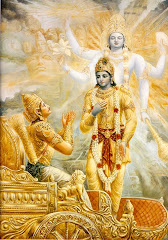



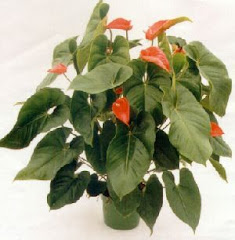


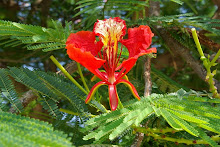

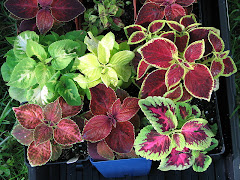
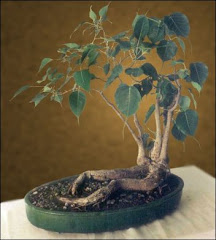
you are spot on this topic of bhalo naam and dak naam.your writing is nearly flawless except for one minor mistake.but since your post is full of gold coins,why talk about a single lump of coal.by the way are you related to tapan sinha ?
ReplyDelete@ MADmusic&movielover: Welcome to my blog :)
ReplyDeleteAnd I'm keen to know about the minor mistake. Do tell me.
P.S. "by the way are you related to tapan sinha"
No. But I wish I was.
aar bolo na. bangali der bhalo naam gulo ja hoye...eto problem face korte hoyeche didi aar aamake naamer karoney ei hindi speaking area tey :(
ReplyDelete@ Reema: Reema tomar daak naam jaantam na to. Tomar bhalo naam-ta khub gaalbhora bujhi?
ReplyDelete